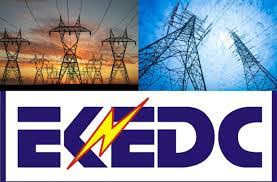It was nine years in November 2022 since the federal government privatized the electricity sector. Since then, the power sector is divided into three value chains which are, power generation, power transmission, and power distribution.
The electricity distribution and generation companies in Nigeria became privatized in 2013, with the federal government retaining the ownership of the transmission company.
Electricity is generated at power plants and moves through a complex system, sometimes called the grid, of electricity substations, transformers, and power lines that connect electricity producers and consumers. Most local grids are interconnected for reliability and commercial purposes, forming larger, more dependable networks that enhance the coordination and planning of electricity supply.
The country has twenty-three (23) power-generating plants connected to the national grid, with the capacity to generate electricity. These plants are managed by generation companies (GenCos), independent power providers, and Niger Delta Holding companies.
Today, Nigeria has about eleven distribution companies that ensure power is brought directly to your home across all states of the country.
Despite these arrangements, reports say Nigeria, Africa’s largest economy, has one of the world’s worst power sectors, producing an average of 5,000 megawatts of electricity for a population of about 200 million for decades. Some 80 million people do not have access to the national grid and power shortages cost the country $29 billion, according to the World Bank.
It will be unfair to compare Nigeria’s electricity consumption to other countries like South Africa, the continent’s second biggest economy. South Africa generates about 55,000 megawatts for a population of about 58 million.
Successive governments in the country have tried but failed to reform Nigeria’s energy sector. The main problems are decaying infrastructure, low investment, debts, and poor management. There are also “operational inefficiencies”, PricewaterhouseCoopers (PwC) said in a 2020 report.
The problem persisted until 2013, when the Federal government unbundled the then state-run Power Holding Company of Nigeria (PHCN) into11 DisCos run by private investors. This also gave room for Generation Companies (GenCos) and the Transmission Company of Nigeria, the only arm run by the government.
However, the problems have continued despite the split into generation, transmission, and distribution companies.
The three arms have traded blames and there has been forth and back on whose fault it is, that Electricity has not been persistent in the country, despite different factors put in place. In June 2020, DisCos blamed the federal government’s high import duty on electricity meters for the difficulty in providing the equipment to their customers, and ultimately for low revenue.
The DisCos also accuse the federal government of reneging on pre-privatization agreements, making it difficult for them to efficiently deliver their services.
Data reviewed by top investigative reporters show that Eko Electricity Distribution Company recorded N151 billion loss with 2018 alone recording a loss of N58.8 billion.
Eko Disco’s head office is located at 24/25 Marina Street, Lagos Island, and covers one part of Lagos State.
The Disco covers Lagos South (Ojo, Festac, Ijora, Mushin (also Orile areas), Apapa, Lekki (also Ibeju areas), Lagos Island (also Ajele areas) and parts of Ogun State (Agbara).
Despite its losses, Eko Electricity Distribution Company (EKEDC) is still maintaining its focus, to improve distribution of electricity in its axis.
The company under Tinuade Sanda’s supervision has continued to put in place strategic plans to engage the electricity consumers across its franchise area for improved service delivery based on feedback.
EKEDC boss, Dr. Tinuade Sanda and her Management team have always made sure to visit districts in continuation of her districts and stakeholders engagement to get on the spot feedback and review for possible solution challenges in the areas of power supply, vandalism and other factors mitigating against service delivery to customers.
A yoruba adage says, “a monkey sweats. Only that the hair on its body makes it less obvious”. Customers must come to the reality that this is a collective struggle. To this end, customers should desist from illegal activities such as meter bypass, meter tampering, vandalism, and assault of staff, which do not only affect the DisCo but the entire power industry.
As a matter of fact, the National Electricity Regulation Company has approved penalties for these criminal offences and EKEDC will ensure that offenders face the wrath of the law for any of these crimes. ‘Every customer has a responsibility to protect the industry’.
Olamide Adeniji is a member of the editorial team of TheScript Newspaper




